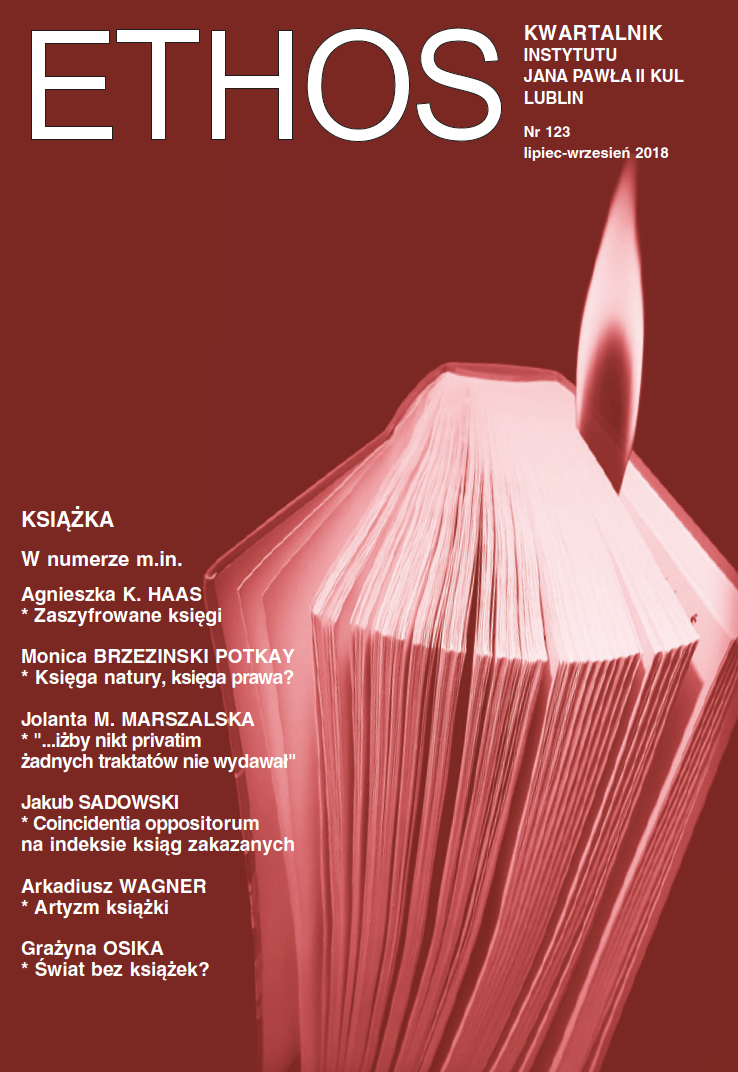„...IŻBY NIKT PRIVATIM ŻADNYCH TRAKTATÓW NIE WYDAWAŁ” Cenzura druków w zborach ariańskich w Rzeczypospolitej w szesnastym i siedemnastym wieku
“...so that no one will publish any treatises privatim.”
Censorship of Prints in Arian Congregations in the Polish Lithuanian Commonwealth in the 16th and 17th Centuries
Author(s): Jolanta MarszalskaSubject(s): Christian Theology and Religion, Studies of Literature
Published by: Katolicki Uniwersytet Lubelski Jana Pawła II - Instytut Jana Pawła II, Wydział Filozofii
Keywords: Arians; the Polish Brethren censorship; forbidden books; synods; the Polish-Lithuanian Commonwealth
Summary/Abstract: In the Polish-Lithuanian Commonwealth of the 16th and 17th centuries censorship served cleansing book collections of works commonly considered as inappropriate. Such volumes were singled out and subsequently destroyed. Arian books, due to their contents, were generally considered as dangerous. The faithful were warned not to purchase or keep them, and, above all, not to read them. As was the case with other dissenting churches, synods controlled the correctness of the contents printed in Arian books and the activity of Arian printing presses was subject to censorship exerted by the congregations. Censorship was particularly strong in the case of confessional writings and theological works in general, although it was not imposed on books from other fields (similar rules were applied to censorship of prints made by the faithful of the Catholic Church). Censorship affected also the printers, who could be forbidden to continue their work (as was the case with Aleksy Rodecki) and printing presses were subject to closure. Thus internal censorship was a tool to avoid persecution (e.g. by the Catholic Church or by the monarch) of authors of theological texts as well as of their publishers. Internal censorship in the Arian congregations was particularly strong since theological books authored by the Polish Brethren were frequently included in the Index librorum prohibitorum. Even today, numerous monastic and diocesan libraries are in possession of volumes which have never been included in their general catalogues. Access to these books has been limited. Most frequently their title pages bear inscriptions such as Prohibitus (forbidden) or Hereticus liber (a heretical book), and occasionally also an additional warning: Noli me tangere (do not touch me).
Journal: Ethos. Kwartalnik Instytutu Jana Pawła II KUL
- Issue Year: 31/2018
- Issue No: 3
- Page Range: 129-142
- Page Count: 14
- Language: Polish
- Content File-PDF

